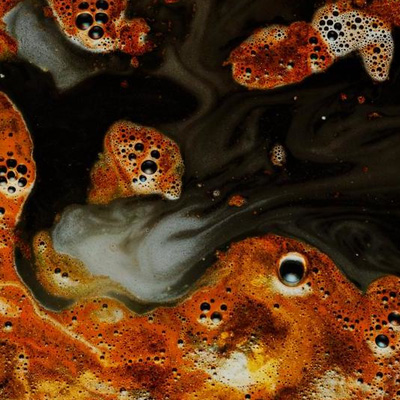Introduction to Industrial Cleaners
Industrial cleaners are products used to clean and degrease metal parts, plastic components, and other similar materials. Their formulations depend on their chemical composition, the type of contamination they are intended to remove, and the nature of the surface to be cleaned.
Each cleaner is made up of different ingredients, each serving a specific purpose:
- Surfactants: Surfactants reduce the surface tension of liquids, making it easier for the cleaning solution to spread across surfaces and break down dirt. They enhance the overall cleaning power of the product.
- Enzymes: Enzymes act as chemical accelerators, breaking down stains and grease more quickly and efficiently for easier removal.
- Solvents: Solvents are the basis of many cleaning products. They dissolve various types of dirt and grime, helping to lift and remove them from surfaces.
- Bleaching agents: Bleaching agents remove oxidizable stains and brighten surfaces.
- Fragrances: Fragrances are incorporated to neutralize unpleasant chemical odors and add a fresh, pleasant scent, improving the product's overall sensory experience.
- Preservatives: Preservatives prevent the growth of bacteria, mold, and fungi inside the product, helping to extend its shelf life and maintain its effectiveness over time.
Benefits of Industrial Cleaners
This category of products is very practical for removing heavy contamination and cleaning technical parts. They effectively eliminate various types of dirt such as grease, oil, resin, dye, and dust. In addition, they help maintain the quality and durability of tools and components, and prevent problems like discoloration, deformation, or even corrosion. A group of these cleaners is specially designed for industrial machines and water jets, and can perform very well under high temperatures, high pressure, or even in advanced cleaning systems like ultrasonic washers. They are also cost-effective, as a small amount of product can remove much dirt, and the cleaning process becomes faster. Their biodegradability and the absence of phosphates, chlorine, and harmful solvents make them environmentally friendly.
Industrial Cleaners: Types and Forms
Industrial cleaners vary in form, pH level, and chemical composition, each designed with specific features to suit particular cleaning needs.
- Powder Cleaners
These solid products dissolve in water to create a strong cleaning solution. They are typically more concentrated and cost-effective than liquid types. They can be used in high temperatures and hard water, although residue may remain on surfaces. - Liquid Cleaners
These ready-to-use products require no mixing—just measure and apply. They are generally milder than powders, making them suitable for a wide range of cleaning tasks. Liquid cleaners are especially effective in low-temperature applications and are generally easier to use. However, they can be more expensive, may have less cleaning power, and, depending on their formulation, may be less environmentally friendly. - Tablet Cleaners
These are compact, pre-measured products that are convenient to use, more hygienic, and more eco-friendly than powders or liquids. Tablets are suitable for small-scale or short cleaning cycles. However, they can be a bit more expensive and may be slower to resolve than other forms. - Alkaline Cleaners
pH above 7, these cleaners are more powerful for degreasing and bleaching. They are ideal for surfaces that are heavily soiled with grease or paint stains. However, due to their strength, they can be more corrosive and irritating, so careful handling is essential. - Acidic Cleaners
pH below 7, acidic cleaners are ideal for removing scale, disinfecting surfaces, and targeting specific types of buildup. They are effective against scale, bacteria, fungi, and germs. However, they may be less stable, produce unpleasant odors, and pose greater risks if not handled properly. - Neutral Cleaners
pH near 7, neutral cleaners are gentle and multifunction, making them a safe choice for delicate materials and surfaces sensitive to pH extremes. They are ideal for use on fabrics, soft finishes, or areas where harsher chemicals could cause damage. However, they may not be as effective against tough stains or microorganisms and offer a more limited cleaning range compared to acidic or alkaline options.
How to Choose the Best Cleaners?
To choose the right cleaner for your industry and achieve the best cleaning results, you need to consider several important factors:
- Based on Surface Type:
Choose a cleaner that is compatible with the surface and will not damage it.
- For delicate materials, neutral cleaners are the safest option.
- For tough dirt on durable surfaces, alkaline cleaners are more effective.
- For removing scale or specific contaminants, acidic cleaners are recommended.
- Based on Contamination Type:
The type and level of dirt will also affect your choice.
- For greasy or colored stains, powder cleaners work best.
- For light or organic stains, liquid cleaners are suitable.
- For medium contamination, detergent tablets can be a practical solution.
- Based on Washing Equipment:
The capacity of the machine and its operating conditions play a role in the choice of detergent.
- For large machines operating at high temperatures, powder cleaners are ideal.
- For machines with smaller capacity or low-temperature operation, go with liquids.
- If the machine handles moderate loads and variable temperatures, tablets can be a good fit.
- Based on Water Quality:
Water hardness significantly impacts the cleaner’s performance.
- In hard or very hard water, powder cleaners perform better.
- For soft or purified water, liquid cleaners are more effective.
- With moderately hard or filtered water, tablets work well.
- Based on Dosage Needs:
Choose your cleaner based on the amount you need to use.
- For high-volume use, powder cleaners are more economical.
- For daily or small-scale cleaning, liquid cleaners are convenient.
- For accurate, controlled usage, cleaning tablets are the best option.
Yekta Shimi Azma, The Most Preferred Supplier of Industrial Cleaners
Yekta Shimi Azma is more than just a supplier. We formulate, manufacture, and deliver high-quality industrial cleaners backed by technical knowledge and a team of experts. Our products are made using the latest chemical technologies to ensure powerful cleaning performance while meeting industry and environmental standards.
We are also active in the export of industrial cleaning products to various countries. If you are looking for a professional solution to remove grease, dust, paint, or scale, our cleaners are an ideal choice. Contact us today and experience premium quality firsthand.
The Importance of Standards in Industrial Cleaners
Industrial cleaners should be used with caution, as they are not without risk. These chemical products can be harmful to health and can potentially cause skin irritation, allergic reactions, or even poisoning. Symptoms such as burning, redness, itching, skin inflammation, eye irritation, and breathing problems are among the possible side effects. Therefore, following safety guidelines such as wearing gloves, protective goggles, and masks, and thoroughly washing hands after use is essential.
Additionally, industrial cleaners may not be compatible with certain materials and may cause damage or discoloration to the surface. It is recommended to test cleaners on a small area before using them on a large scale. Improper disposal of these products can also harm the environment and contaminate water and soil. To minimize their environmental impact, it is important to comply with environmental regulations and use wastewater treatment or recycling systems where possible.
FAQs
1. What are industrial cleaners used for?
Industrial cleaners are used to clean and degrease metal parts, plastic components, and industrial equipment, removing contaminants such as grease, oil, paint, and dust.
2. What role do surfactants play in industrial cleaners?
Surfactants reduce the surface tension of liquids, which increases the product's spreadability and cleaning ability on surfaces.
3. How can we reduce the environmental impact of industrial cleaners?
By following environmental standards, using wastewater treatment systems, and choosing biodegradable cleaning agents, we can significantly reduce the footprint of these products.


